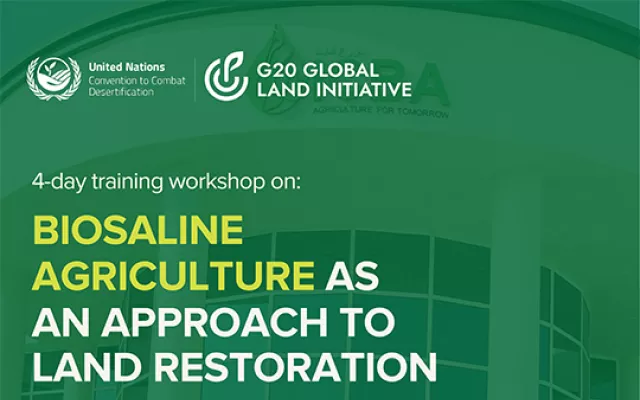Experts discuss improving agricultural value chains in Central Asia
22 December 2019
A total of 33 participants, including representatives of Uzbekistan's Ministry of Agriculture, national agricultural universities, international organizations and non-governmental organizations, discussed the importance of enhancing agricultural value chains in marginal environments of Central Asia at a three-day event in Tashkent, Uzbekistan, in late December 2019.
From 19 to 21 December 2019, ICBA organized a two-day training course on the application of system dynamics in value chain analysis and a one-day workshop on value chain development in marginal environments in partnership with the United States Agency for International Development (USAID); the National Academies of Science, Engineering and Medicine; the University of Nevada, Reno; the International Platform for Dryland Research and Education (IPDRE), and Tottori University, Japan.
The three-day event was arranged as part of the project titled “Use of non-conventional agricultural water resources to strengthen water and food security in transboundary watersheds of the Amu Darya river basin (UNCAWR)”.
Dr. Aziz Karimov, Head of ICBA’s Regional Office for Central Asia and South Caucasus, said: "Both the training course and the workshop were organized in line with the national priorities of Uzbekistan, and objectives of the UNCAWR project. During the training course, we used the system dynamics approach as an analytical tool. It is a computer-aided approach for policy analysis and design. It applies to dynamic problems arising in complex social, managerial, economic, or ecological systems, literally any dynamic systems characterized by interdependence, mutual interaction, information feedback, and circular causality."
The training course included both lectures and practical exercises and allowed participants to gain knowledge on the system dynamics concept and simple models for analyzing value chains in agriculture as the basis for decision-making.
Dr. Sirak Bahta, a senior agricultural economist at the International Livestock Research Institute (ILRI), Kenya, highlighted the need to apply systems thinking in agricultural management. He explained the tools that can be used to build value chains, the challenges that might arise and the ways to overcome them.
The UNCAWR was a five-year project implemented since 2015 under the Partnerships for Enhanced Engagement in Research (PEER) program - an international grants program that funds scientists and engineers in developing countries who partner with US government-funded researchers to address global development challenges.
The project aimed to quantify non-conventional land and water resources in transboundary watersheds of the Amu Darya basin and study their use for agricultural production of non-conventional crops to increase regional water and food security.










